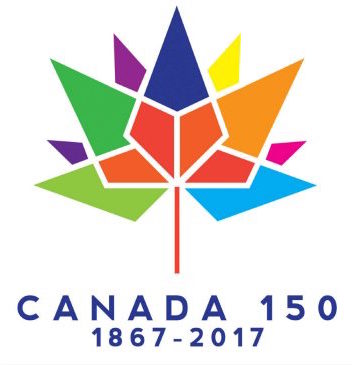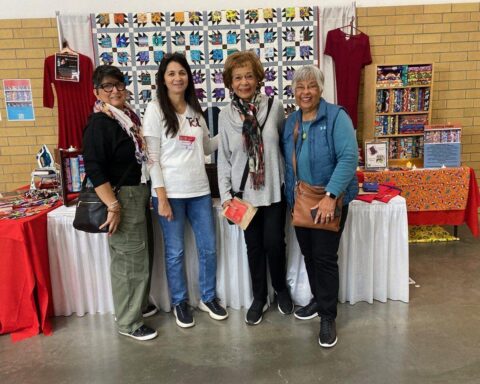 Canada’s foreign policy is caught in a precarious balancing act between the “sunny ways” of election promises and the realpolitik of weapons sales to countries with dubious human rights records.
Canada’s foreign policy is caught in a precarious balancing act between the “sunny ways” of election promises and the realpolitik of weapons sales to countries with dubious human rights records.
In his new book, Two Freedoms: Canada’s Global Future, former Senator Hugh Segal suggests a solution that he says is focused, principled, and based on two foundational principles – freedom from fear and freedom from want.
Segal’s expertise in foreign policy was acquired through more than 30 years of involvement in foreign and security policy. This included chairing the Senate Foreign Affairs and Special Anti-Terrorism committees and the Canadian Institute for Strategic Studies, as well as a serving term as President of the Institute for Research and Public Policy (IRPP), a non-partisan think tank and research institution.
Introducing his book at a launch hosted by the IRPP in partnership with the Ottawa International Writers’ Festival, he explained that while he has the highest regard for some of Canada’s hardworking diplomats and other foreign service personnel, he is concerned that foreign policy is a mess of shifting priorities swinging from right to left, according to the ideology of the government that happens to be in power.
His aim, he said, is to give some clarity and direction to foreign policy, which in his opinion, should not be dependent on party politics.
The launch took the form of a conversation between Segal and Jennifer Ditchburn, Editor-in-Chief of Policy Options, the magazine affiliated with IRPP.
“Living in a state of economic and social despair can produce huge and even cataclysmic consequences . . .”
More foreign aid
Elaborating on freedom from want, Segal said it is in Canada’s interest to see that families, communities and nations around the world live in reasonable prosperity, buoyed by a sense of hope for the future.
“Living in a state of economic and social despair can produce huge and even cataclysmic consequences, not only for those living in despair, but for their neighbouring communities and countries,” he pointed out, adding that the total absence of hope leads to violent behaviour based on a “nothing-to-lose” attitude.
“Putting those two freedoms – freedom from want and from fear – at the centre of our foreign policy would make it more coherent and the world would understand better what we stand for as Canadians,” Segal said.
He added that if extreme poverty is the root cause of violence, we have to ask ourselves what we can do to diminish this cause.
“I think that both in terms of foreign aid and international development and in terms of doing our fair share militarily, we are not doing enough,” he said. “In the [Prime Minister] Lester Pearson era we contributed 0.7 per cent of our gross domestic product (GDP) to foreign aid, but in recent years our numbers have been much lower.”
Prime Minister Justin Trudeau recently pledged to boost funding to the global fight against HIV, tuberculosis and malaria, but said Ottawa will not meet the goal to spend 0.7 per cent of GDP on foreign aid anytime soon.
“We have a big hat, but no cattle,” a reference to cowboys whose boastful talk is not matched by action . . .
Increase military capacity
Another key point that Segal makes in his book and highlighted at the event, is that Canada needs to reinforce its values-based foreign policy with an appropriate military capacity.
“We have a great military, but we need more of them,” he said. “Canada should probably have Armed Forces of 150,000, of which 100,000 are regular forces and 50,000 are reserves rather than our present number which is in the 50,000 to 60,000 range.”
He said Canada also needs a 60-ship fighting navy, rather than one that has 20 or 30 ships, that can be deployed on humanitarian and diplomatic missions “to send a clear message about Canadian values.”
Giving some examples of how such military strength could help Canadians and those abroad, Segal said, “We need to make sure the Chinese respect the territorial integrity of Taiwan and other people.”
“Our failure to engage with [Bashar al-] Assad three or four years ago is why we have such a horrendous situation now,” he added, referring to the ongoing civil war in Syria.
Using a Western Canadian expression, he said: “We have a big hat, but no cattle,” a reference to cowboys whose boastful talk is not matched by action or even the capacity for action.
“There has to be more cohesion between our foreign policy and defence policy.”
Decline since Chrétien era
“There has to be more cohesion between our foreign policy and defence policy,” he emphasized.
Segal’s central thesis is strongly reminiscent of a 2003 publication While Canada Slept: How We Lost Our Place in the World by Ottawa writer Andrew Cohen. Both authors lament the decline of Canada’s foreign policy and its military, especially since the glory days of Prime Minister Pearson.
Both consider that it took a turn for the worse under the leadership of Prime Minister Jean Chrétien. Segal points out that in that era, by sending delegations of Canadian business people and politicians around the world to increase trade, it became necessary to tread carefully so that no potential trading partner would be offended.
Both Segal and Cohen call for a values-based approach.
“The notion that this book might contribute to that debate in some constructive way would be my fondest hope,” said Segal.
Ottawa-based writer/journalist, editor, blogger, communications professional seeking freelance opportunities in political and travel writing.





